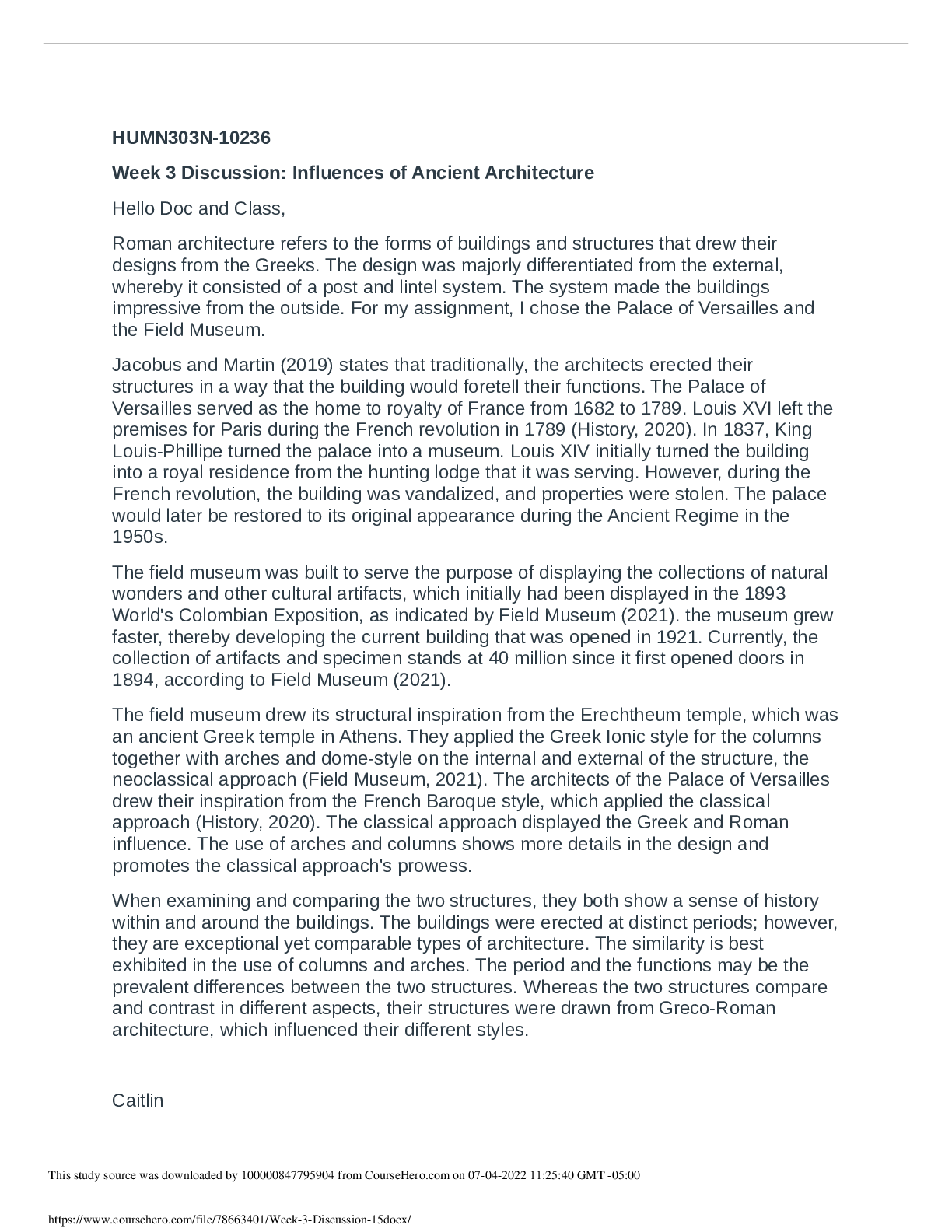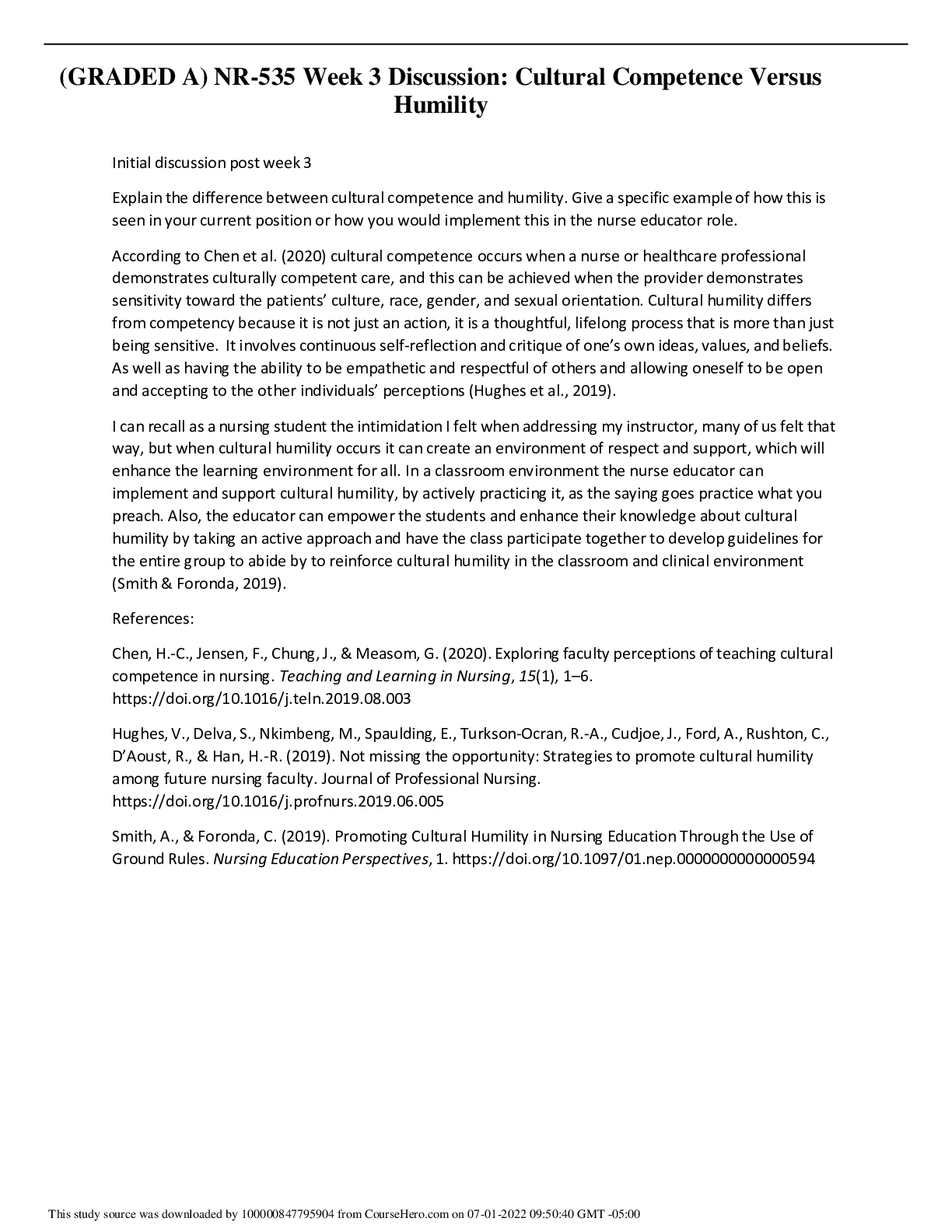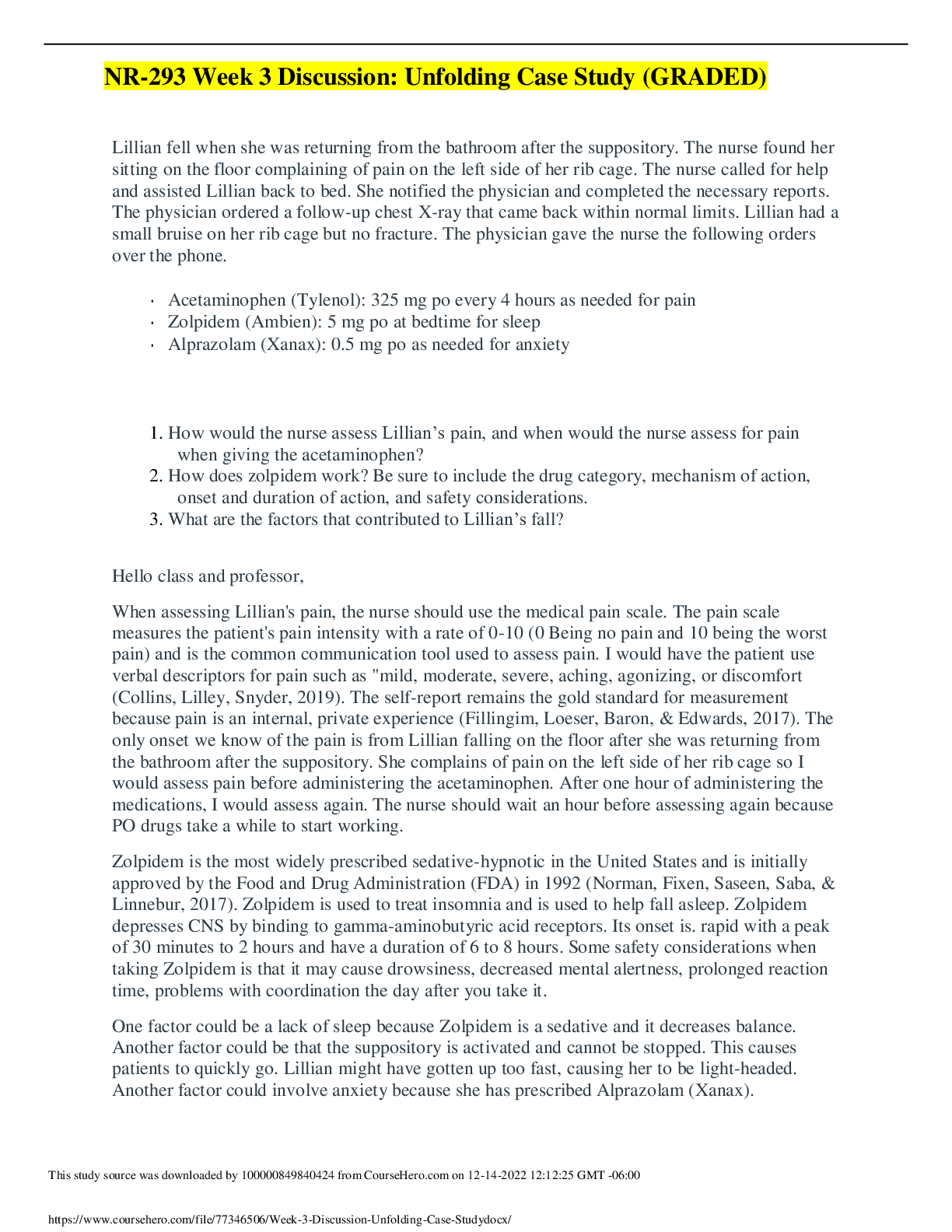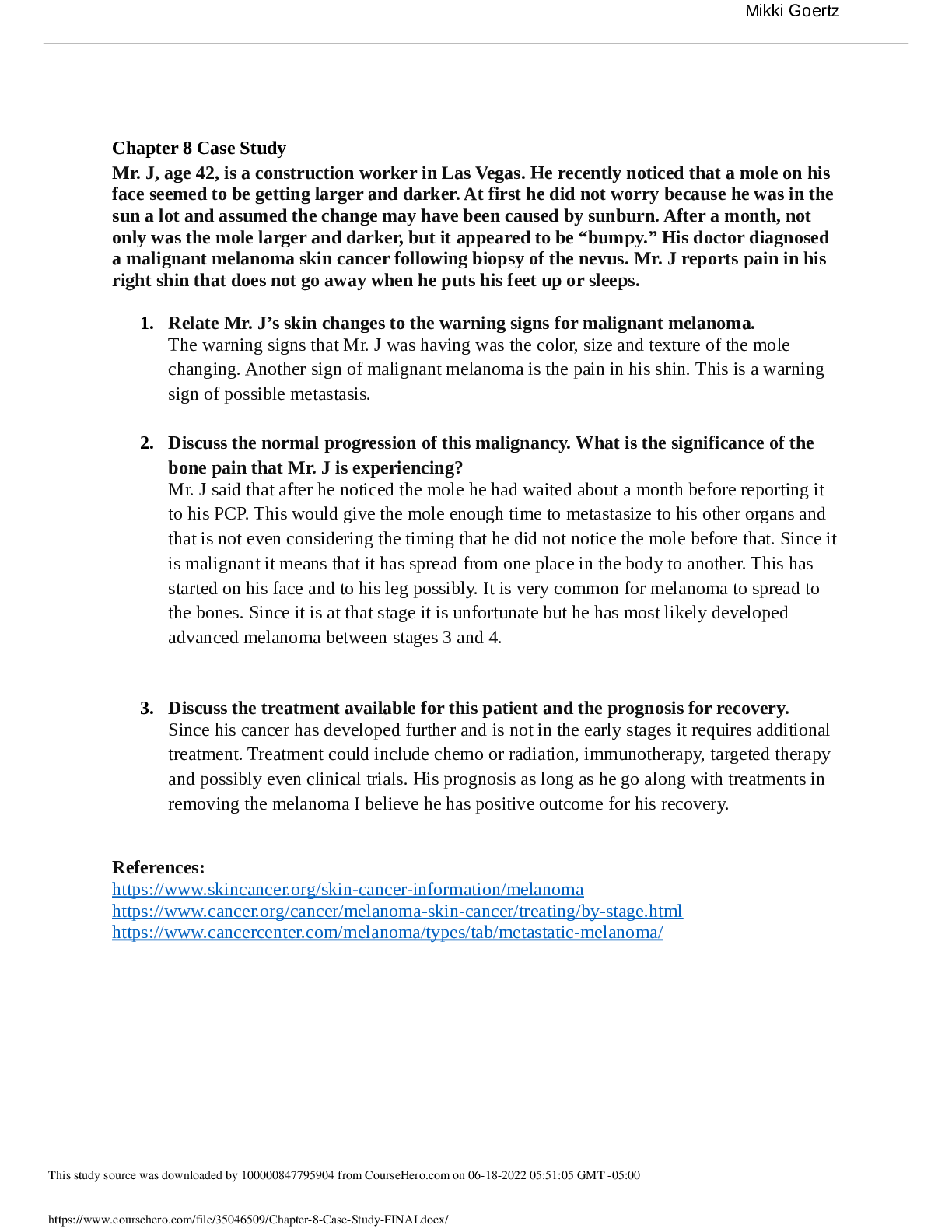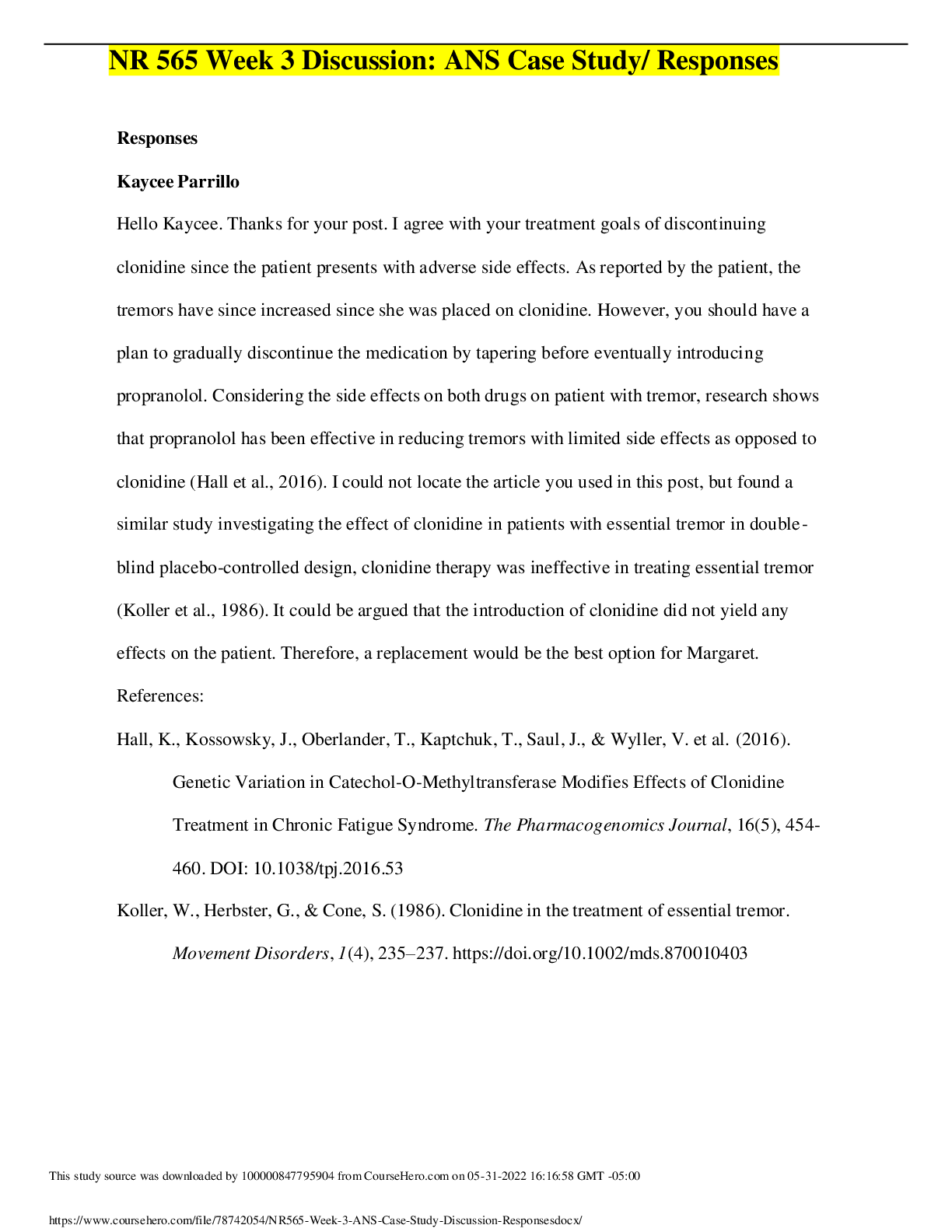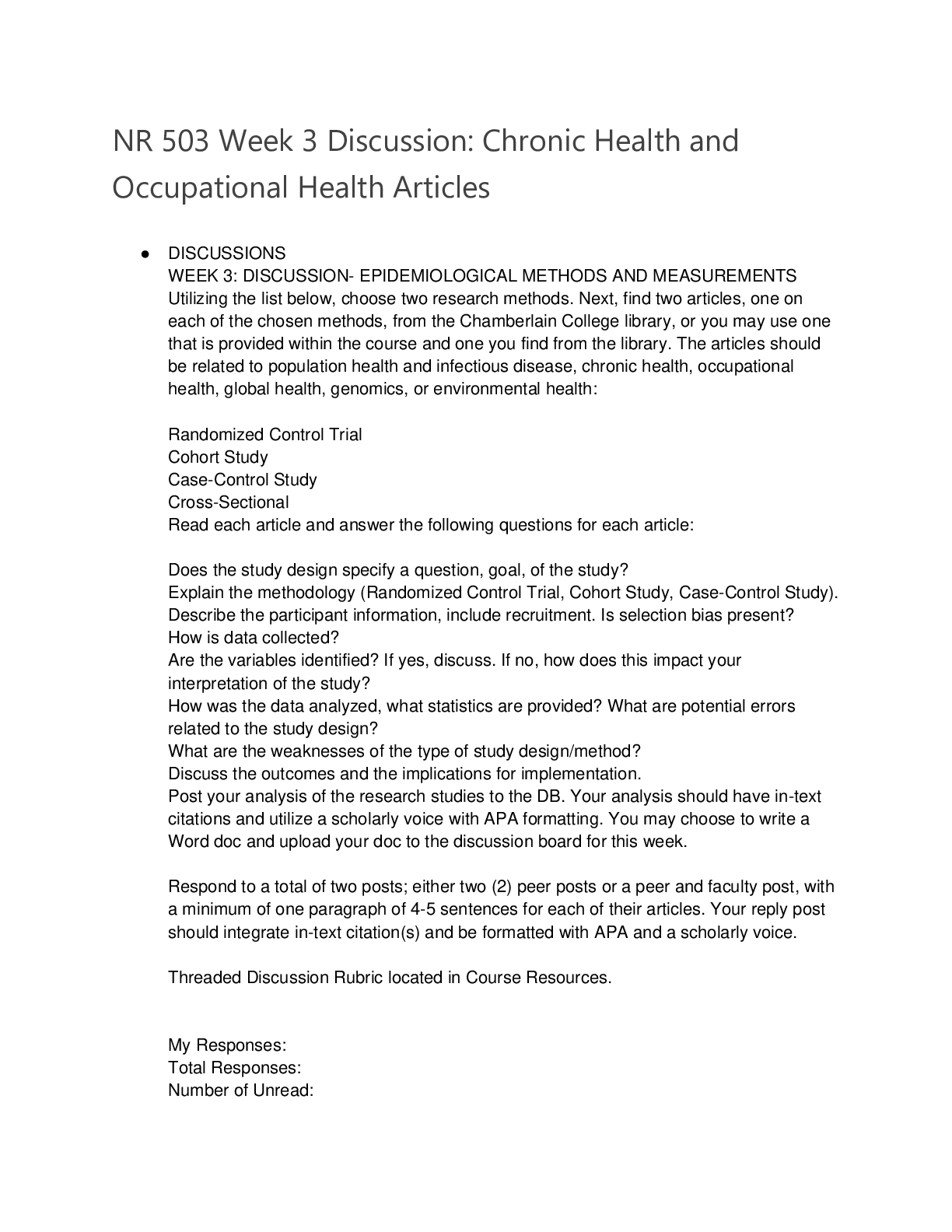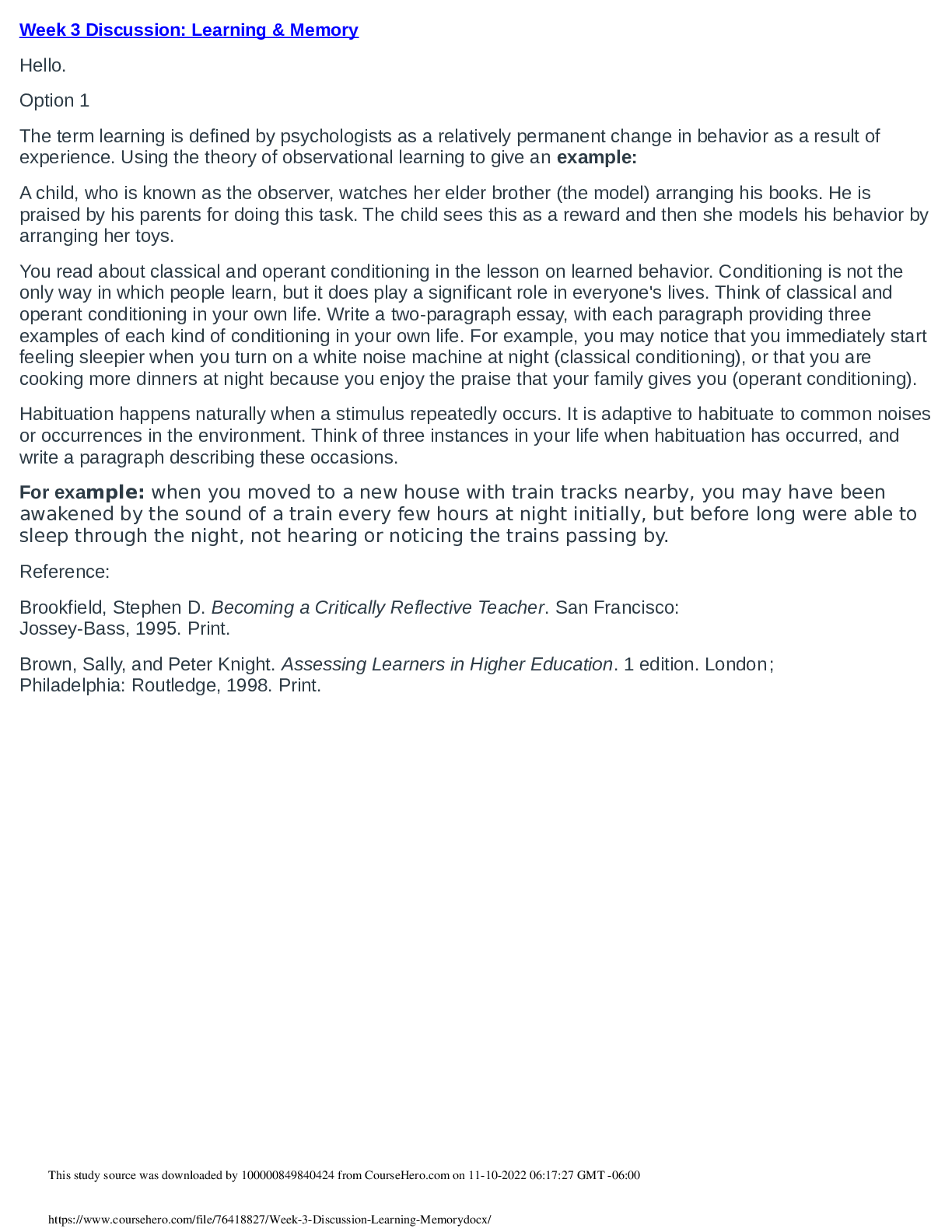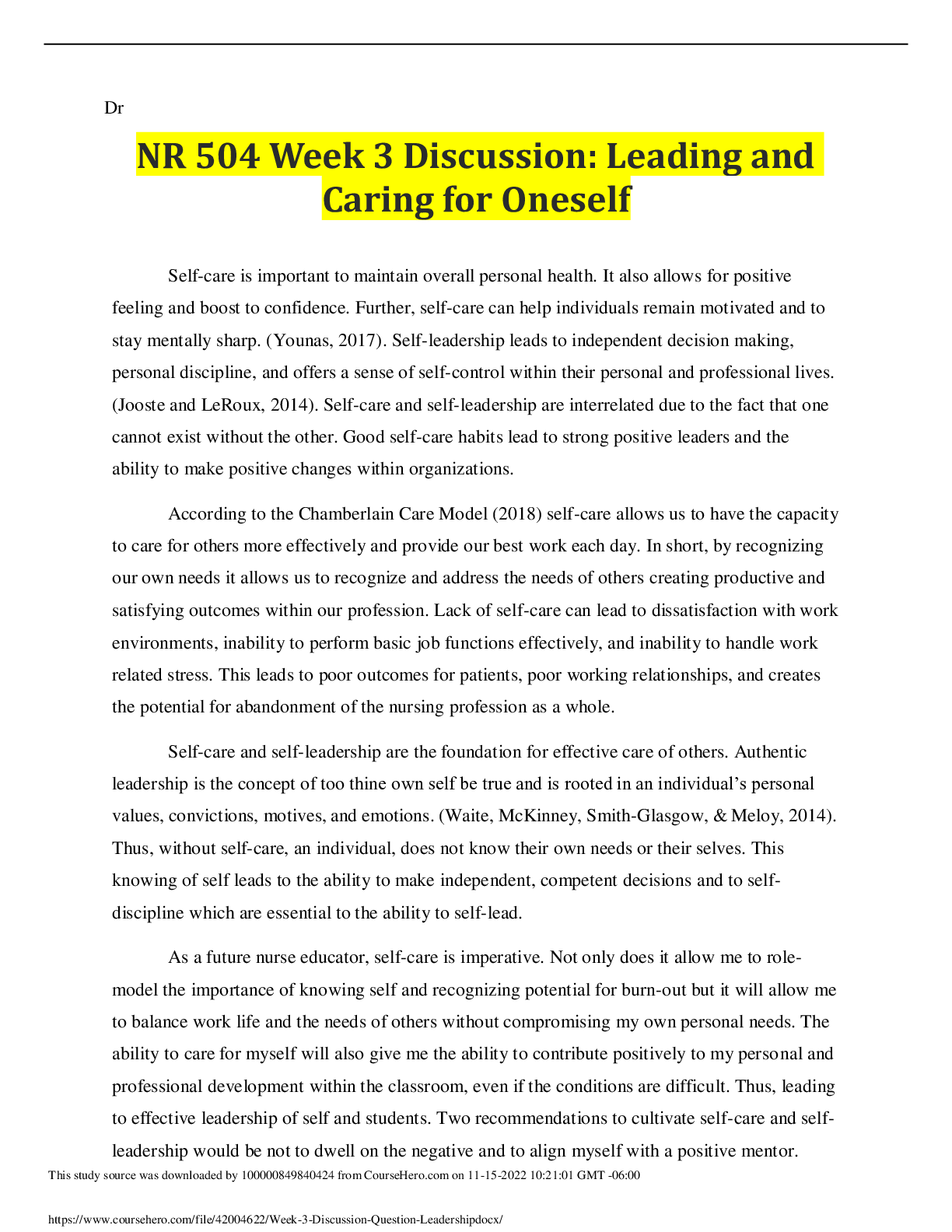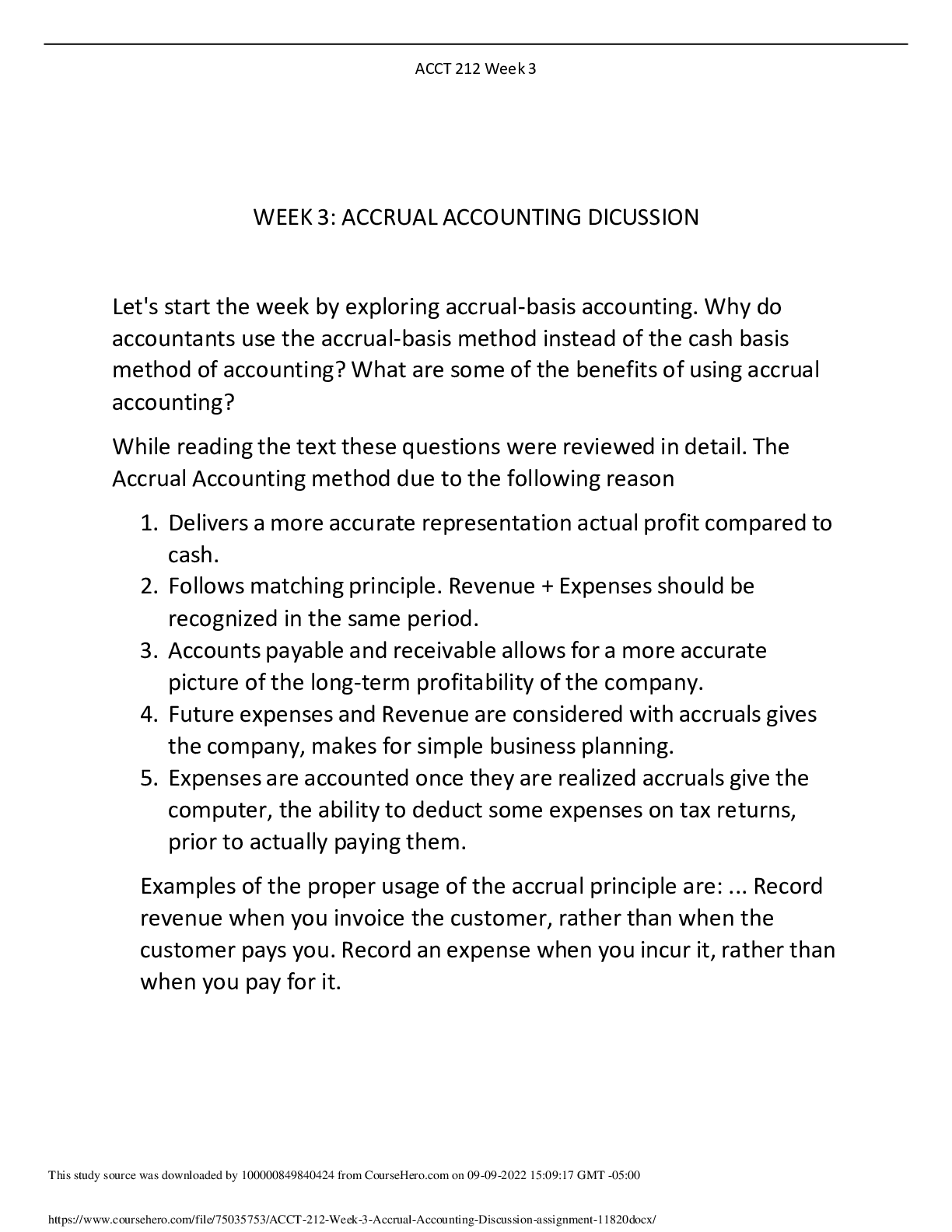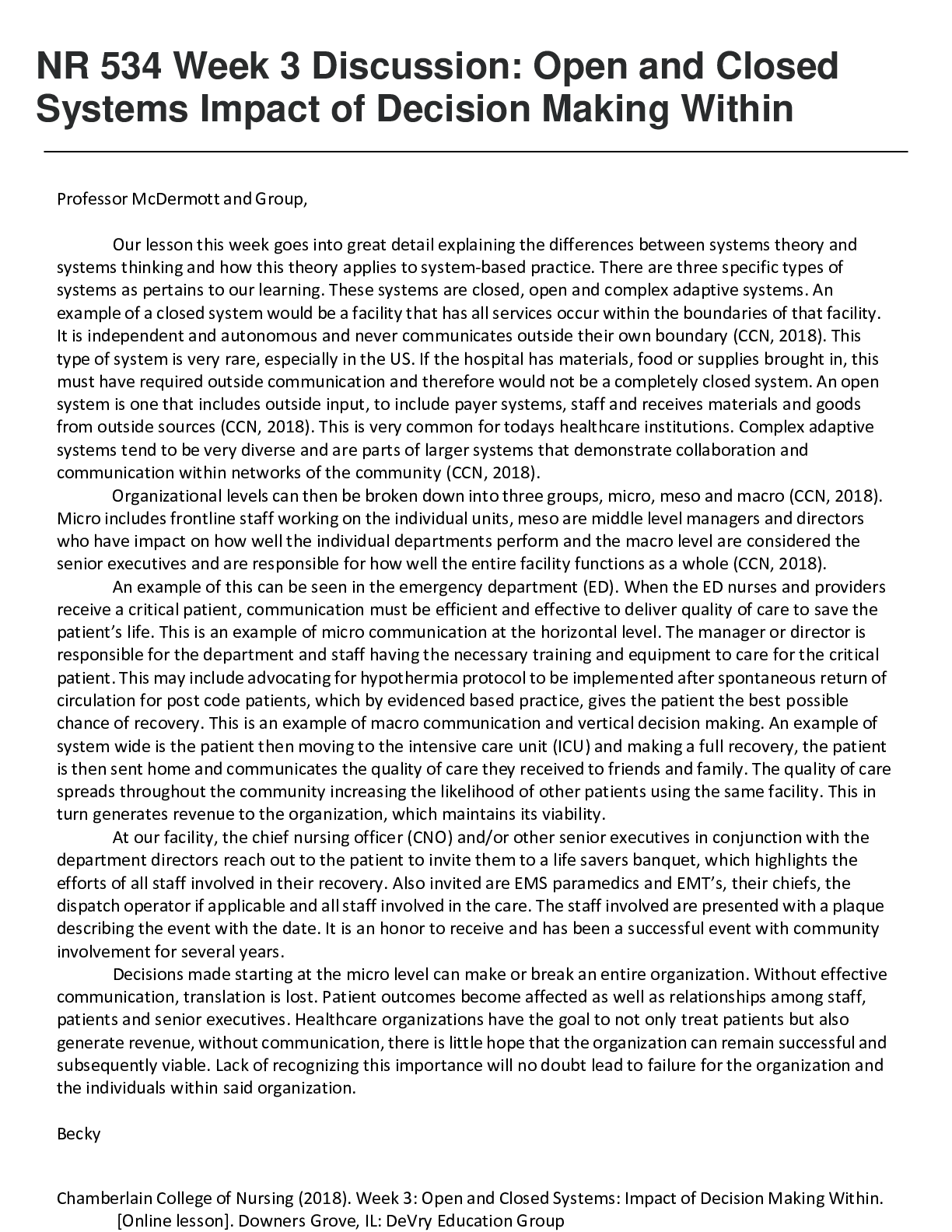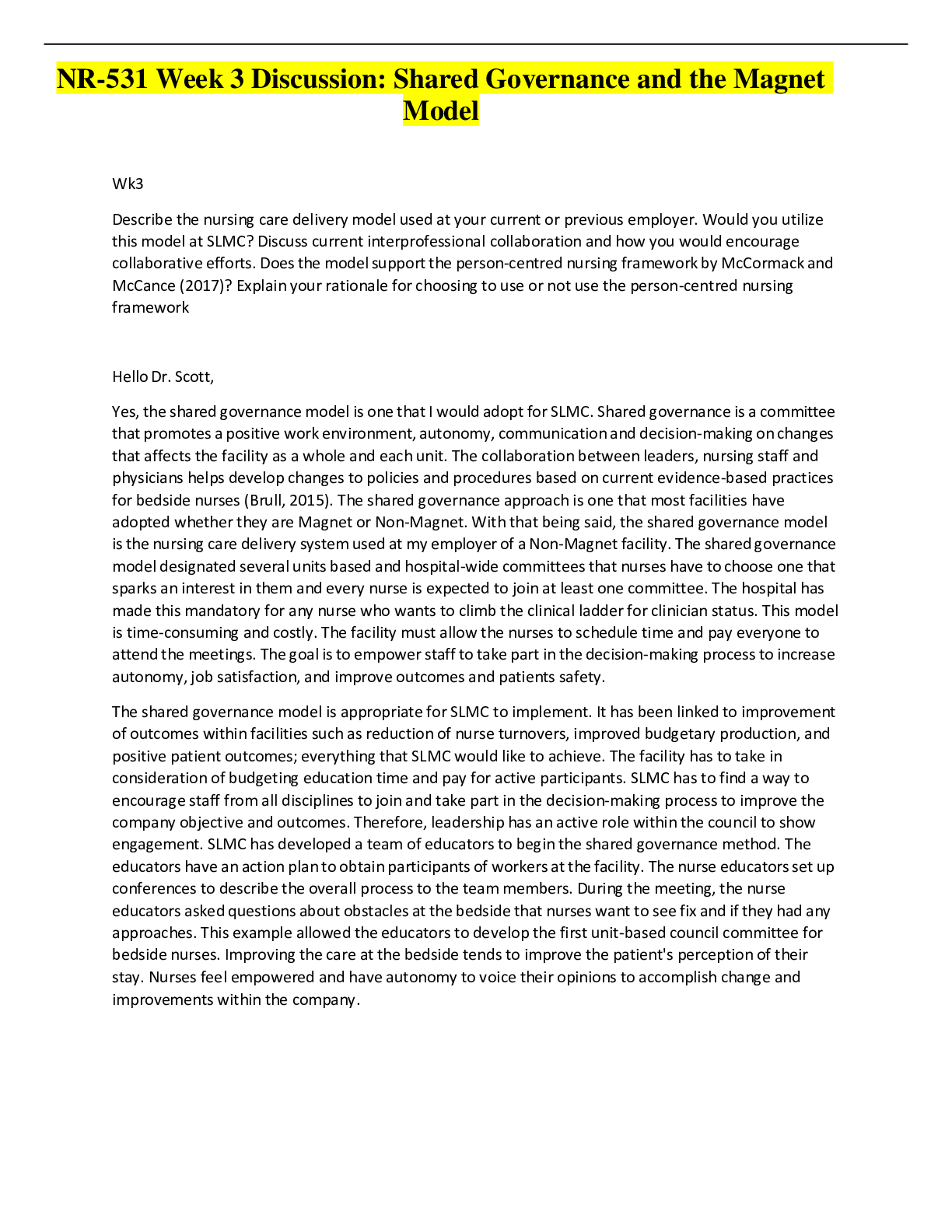Philosophy > DISCUSSION POST > PHIL 347N Week 3 Discussion: Distinguishing Inductive and Deductive Reasoning (All)
PHIL 347N Week 3 Discussion: Distinguishing Inductive and Deductive Reasoning
Document Content and Description Below
Week 3 Discussion 1: Distinguishing Deductive from Inductive Reasoning 11 unread reply.11 reply. Required Resources Read/review the following resources for this activity: Textbook: Chapter 5... , 6 Lesson Minimum of 1 scholarly source Initial Post Instructions Deductive arguments are top-down, working from general principles to specific cases. Inductive reasoning, on the other hand, is bottom-up, working from specific observations and looking for patterns that lead to a general conclusion. Your career path in healthcare and health-related fields will present many problems that will require critical reasoning. Think about potential issues or even issues you have already encountered. Determine what type of critical reasoning - inductive or deductive - best suits the situation - or do you need both? If you are short on ideas, use one of these scenarios as a starting point: Suppose you are on a committee that has to decide whether to cut nursing staff or social services staff. How would you approach the problem? Suppose your hospital suddenly sees an enormous increase in emergency room patients, and you are on a committee to investigate the problem and relieve pressure on the ER. How would you approach the problem? Follow-Up Post Instructions Respond to at least two peers or one peer and the instructor. Further the dialogue by providing more information and clarification. Writing Requirements Minimum of 3 posts (1 initial & 2 follow-up) APA format for in-text citations and list of references Grading This activity will be graded using the Discussion Grading Rubric. Please review the following link: Link (webpage): Discussion Guidelines This study source was downloaded by 100000831988016 from CourseHero.com on 05-03-2022 04:53:04 GMT -05:00 https://www.coursehero.com/file/38488300/Week-3-Discussion-postdocx/ Course Outcomes (CO): 3, 4 Due Date for Initial Post: By 11:59 p.m. MT on Wednesday Due Date for Follow-Up Posts: By 11:59 p.m. MT on Sunday Post 1 Suppose your hospital suddenly sees an enormous increase in emergency room patients, and you are on a committee to investigate the problem and relieve pressure on the ER. How would you approach the problem? For this scenario, I would need both inductive and deductive arguments to investigate the problem in the ER. Because first there is, and influx and patients and I need to determine why this is so and secondly, I need to increase the staffing or find an alternative to reduce the pressure on the ER. A first premises is a deductive argument because the arguer shows that the truth of the conclusion necessarily follows from the premises. It is also called the top down approached and the premises included the conclusion “the sudden enormous influx and ER patients”. Universal affirmative and negative argument are the two types of deduction reasoning Jackson & Newberry (2016). This argument is a universal negative deductive because this claim expresses a whole category “A sudden enormous increase in emergency room patients” means that there is something negatively affecting the community. Second premise is an Inductive argument the premises shows because there is an increase of ER patients something needs to be done to” relieve the pressure on the ER” the arguer demonstrated that the true conclusion follows the premises the down top approached. Inductive arguments have three categories; general, analogical and causal arguments. This argument is a general induction argument it claims all for example “there is an influx of patients in the ER, so something need to be done to ease the pressure of the ER”. In an analogical induction, a claim compares two or more things where each claim draws an analogy. A causal argument is defining by the cause of some event References: Jackson, D. & Newberry, P. (2016). Critical thinking: A user's manual (2nd ed.). Boston, MA: Wadsworth: Cengage Learning. Post 2 Critical thinking and reasoning provides us with the means to assess and upgrade our ability to make good judgments and to learn from new experiences. It essential provides us with the tools that we need to act as rational and logical human beings (Silver, 2011). Part of critical thinking is the use of both inductive and deductive reasoning. Inductive arguments are an attempt to prove that a conclusions likely follows the premises. Deductive arguments on the other hand attempt to show that the truth of a conclusion must follow the premises or in other words the premises logically lead to the conclusion. The conclusion of a deductive argument is intended to be necessary while the This study source was downloaded by 100000831988016 from CourseHero.com on 05-03-2022 04:53:04 GMT -05:00 https://www.coursehero.com/file/38488300/Week-3-Discussion-postdocx/ conclusion of an inductive argument is intended to be probable (Jackson & Newberry, 2016). Some arguments may require both inductive and deductive reasoning while others may require just one or the other. An example of inductive reasoning in the medical field would be as follows: Premise 1: Most cases of lung cancer are caused by smoking Premise 2: Bob has lung cancer Conclusion: Bob was a smoker Issue: The issue here is that is was probable that Bob was a smoker but that conclusion is not necessarily true. An example of deductive reasoning would be: Premise 1: There has been an increase in emergency room patients Premise 2: More patients require more nurses Conclusion: We need to hire more nurses Issue: This conclusion is a necessity based on the premises presented. However, using this type of reasoning in situations like this may not yield the best response. Of course the argument is logical but it fails to address other issues that might be associated with hiring more nurses or having too many patients. Jackson, D. & Newberry, P. (2016). Critical thinking: A user's manual (2nd ed.). Boston, MA: Wadsworth: Cengage Learning. Silver, C. (2011, March 10). The importance of logic and critical thinking. Wired. Retrieved from http://www.wired.com/2011/03/the-importance-of-logic-critical-thinking/ Hi Stella , Very detailed and informative post, I got a better understanding of Inductive and deductive arguments through your post. Looking indebt with these two reasoning types in observations most of the times we argue inductively, that what at any given time our arguments can be proven wrong . I was having a conversation with my sister about ten years ago she got a very bad stomach bug after eating fish and so I made grilled salmon and asked her to try it , she refused but what I got from this conversation “she stated fish is bad for human , it cause diarrhea and vomiting and if you eat that fish it will give you diarrhea and vomiting”. Her argument was inductive because not because she got vomiting and diarrhea after eating fish ten years ago, does not mean that it was the fish cause it, and maybe if she had tried it, she would prove that fish was not the reason she had the stomach bug. But I left the conversation that and said ok. This study source was downloaded by 100000831988016 from CourseHero.com on 05-03-2022 04:53:04 GMT -05:00 https://www.coursehero.com/file/38488300/Week-3-Discussion-postdocx/ Like many people she took that specific event/observations and draws general conclusions from that observation. The problem, obviously, is that she has not eaten all the fishes and her argument is proven wrong daily since, I am a regular fish eater and never got a stomach bug by eating fish, so her conclusion is proven wrong. Regards, Kayana References: Jackson, D. & Newberry, P. (2016). Critical thinking: A user's manual (2nd ed.). Boston, MA: Wadsworth: Cengage Learning. Week 3 Discussion 2: Understanding Deductive Categ [Show More]
Last updated: 1 year ago
Preview 1 out of 7 pages

Also available in bundle (1)

PHIL 347N WEEK 4 ASSIGNMENT, CHECKPOINT QUIZ, DISCUSSION – COMPLETE
PHIL 347N WEEK 4 ASSIGNMENT, CHECKPOINT QUIZ, DISCUSSION – COMPLETE
By Nutmegs 2 years ago
$15
3
Reviews( 0 )
Document information
Connected school, study & course
About the document
Uploaded On
May 03, 2022
Number of pages
7
Written in
Additional information
This document has been written for:
Uploaded
May 03, 2022
Downloads
0
Views
97

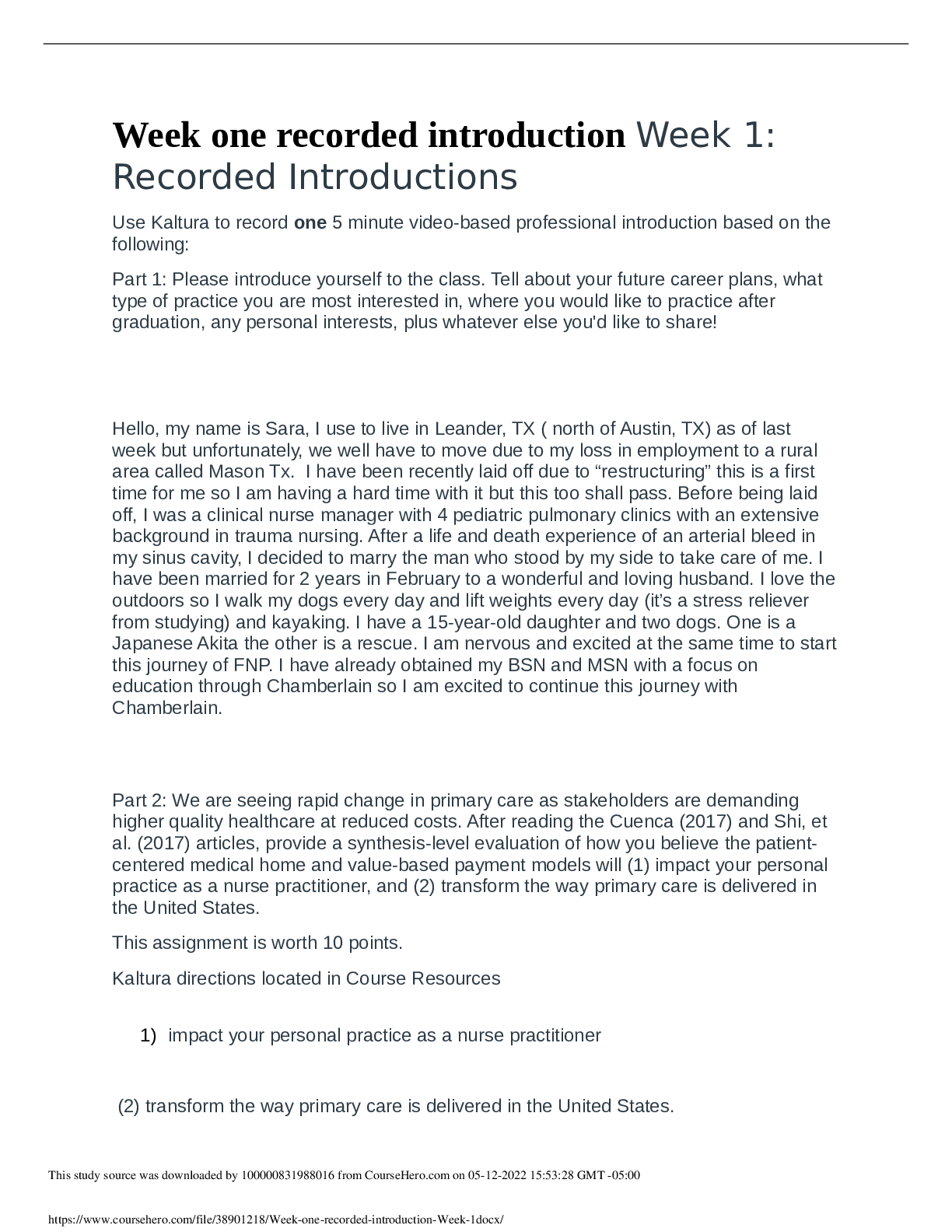





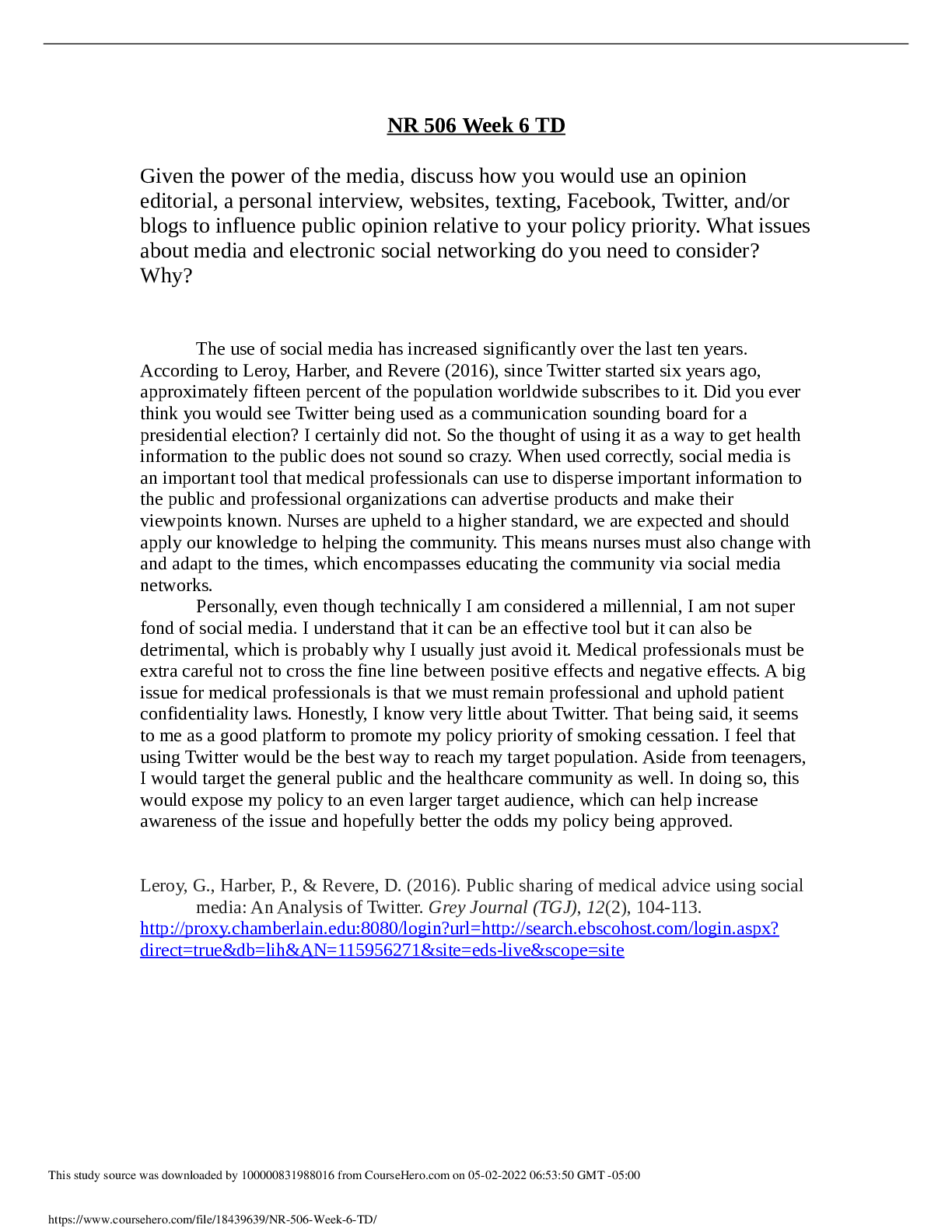
.png)
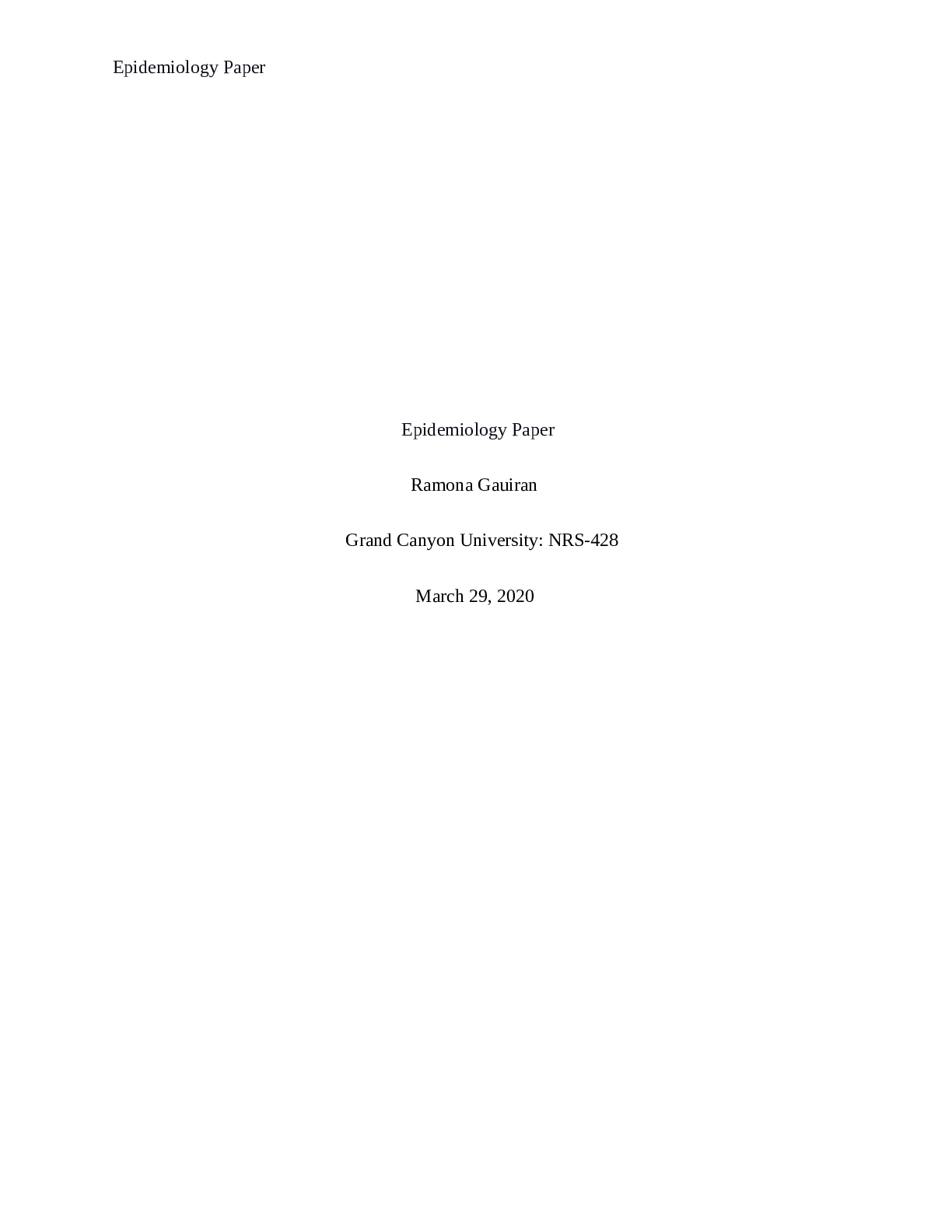
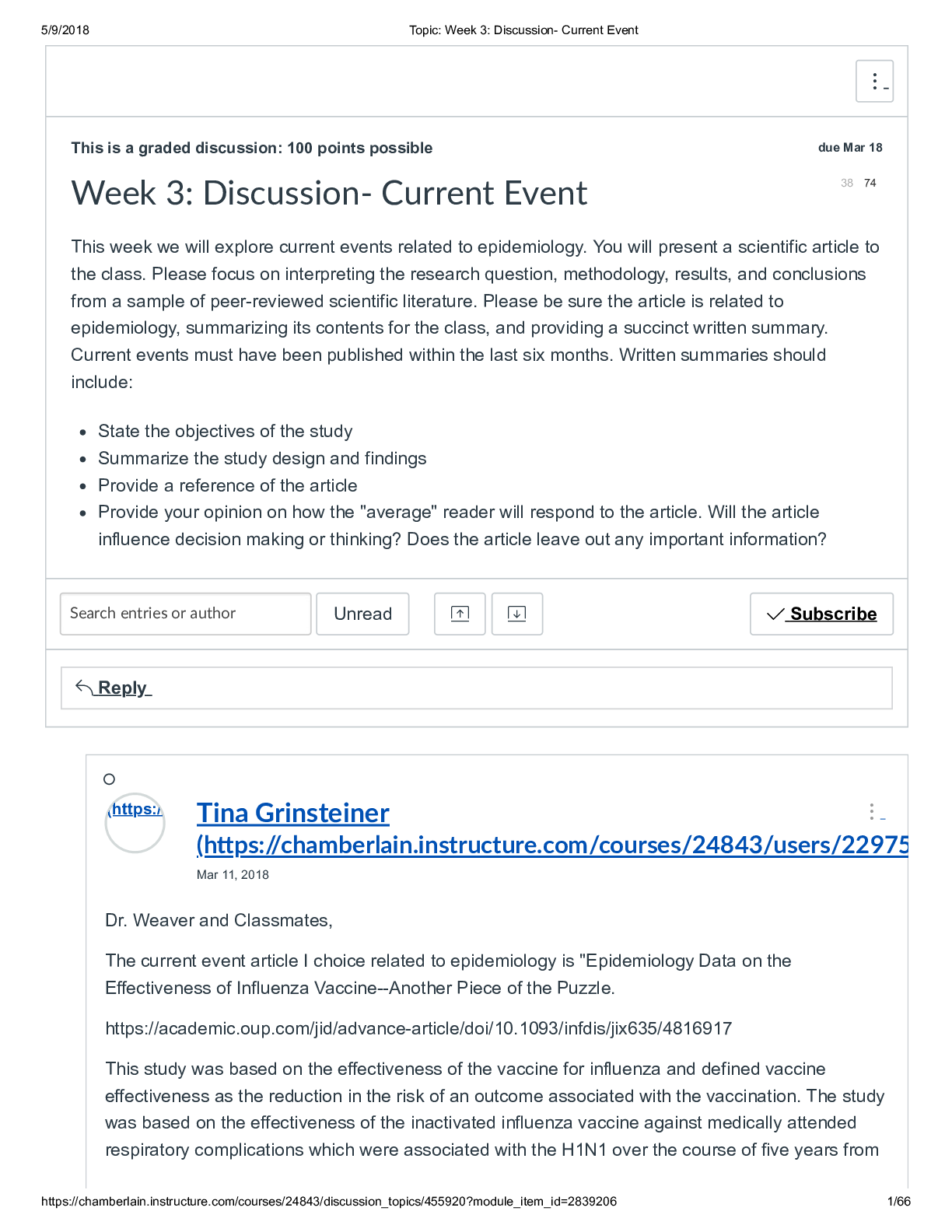

.png)

.png)


